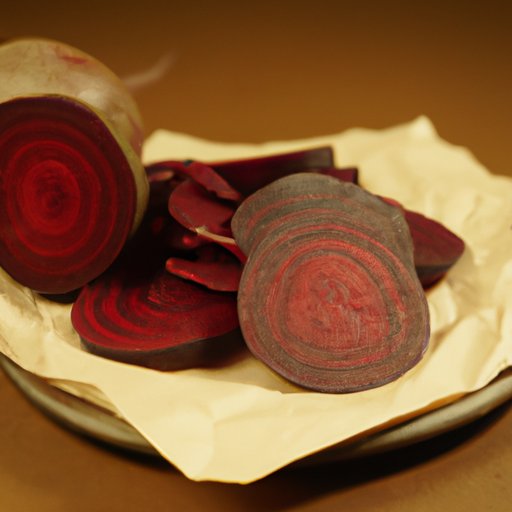
I. Introduction
Do beets make you poop? This is a common question asked by many people who are interested in the relationship between food and digestion. Beets are packed with nutrients that offer numerous health benefits, including promoting healthy digestion. However, most people are unaware of how beets impact digestion. This article will explore the science behind how beets impact digestion, including the potential benefits and side effects.
II. Nutrients in Beets and Their Digestive Impact
Beets are a nutrient powerhouse, rich in essential vitamins and minerals. In particular, they’re a great source of fiber and nitrates. Fiber plays a critical role in promoting healthy digestion and bowel movements. It passes through the digestive system mostly intact and helps regulate bowel movements, keeping constipation at bay. Meanwhile, nitrates found in beets can be converted into nitric oxide, which may help regulate intestinal function.
III. Potential Digestive Benefits and Drawbacks of Eating Beets
Eating beets can be beneficial for digestive health. Foods high in fiber, like beets, can promote regular bowel movements. Additionally, the nitrates in beets could potentially reduce inflammation in the gut and provide relief from digestive disorders like inflammatory bowel disease. However, there are also some drawbacks to eating beets, including gas, bloating, and diarrhea, which could be an issue for those with sensitive stomachs. It’s important to pay attention to how your body responds to beets.
IV. How to Incorporate Beets into Your Diet for Improved Digestion
There are various ways to incorporate beets into your diet for optimal digestion. One easy way is to add them to your salad or smoothie. You can also roast or boil beetroot, which tastes great as a side dish. If you want to go a step further, you can try grating beets as a topping on your favorite dishes. For best results, pair beets with other high-fiber, nutrient-dense foods to support gut health.
V. Do Beets Really Make You Poop? The Evidence
While many people believe that eating beets can lead to increased bowel movements, the evidence is mixed. Some studies suggest that beets may help regulate bowel movements and prevent constipation. However, individual digestive systems can respond differently to beets, and some people may experience gas, bloating, and stomach upset. It’s crucial to be mindful of your body’s reactions to beets and to incorporate them in moderation.
VI. Conclusion
Beets are an excellent source of fiber, vitamins, and minerals with many potential benefits for digestion. While they may have some drawbacks, such as gas and bloating, incorporating beets into your diet in moderation can support healthy digestion. It’s essential to pay attention to your body’s responses to food and incorporate a diverse range of high-fiber, nutrient-rich foods into your diet for optimal gut health.





